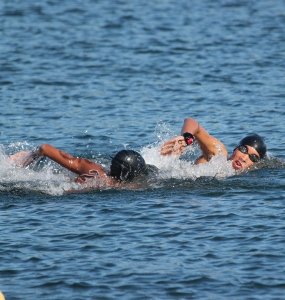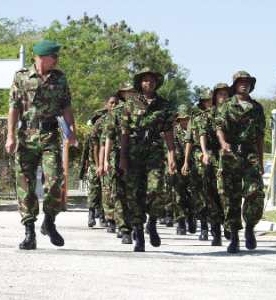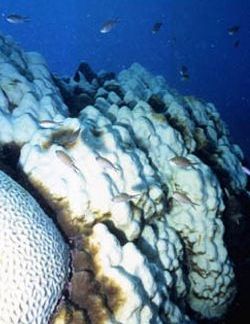Archive for August 22nd, 2012

Charity auction introduces direct sponsorship lot
 (CNS): The annual Breast Cancer Foundation Gala Dinner and Auction will be introducing a new lot this year in the hope of finding sponsors for thosein need of treatment. Alongside the usual list of items donated by local businesses such as travel excursions, one-of-a-kind experiences and exclusive specialty packages and gifts, guests can also bid on and donate charitable service packages to those in need. This is the first year that the foundation will introduce “mammogram and flight packages,” where bidders can choose to directly sponsor costs of medical exams or provide roundtrip air tickets to assist local breast cancer patients who require treatment overseas.
(CNS): The annual Breast Cancer Foundation Gala Dinner and Auction will be introducing a new lot this year in the hope of finding sponsors for thosein need of treatment. Alongside the usual list of items donated by local businesses such as travel excursions, one-of-a-kind experiences and exclusive specialty packages and gifts, guests can also bid on and donate charitable service packages to those in need. This is the first year that the foundation will introduce “mammogram and flight packages,” where bidders can choose to directly sponsor costs of medical exams or provide roundtrip air tickets to assist local breast cancer patients who require treatment overseas.
“The addition of these charitable packages to our live auction will have a tremendous impact on the direct assistance that the Breast Cancer Foundation can extend,” said Heather McLaughlin on behalf of the foundation. “It will enable us to provide comfort and support to patients who cannot bear the financial burden of a diagnosis. The charitable packages will truly be a gift from your heart to theirs.
From its inception in 2009, the non-profit organisation has supported a number of persons with breast cancer in the Cayman Islands. The foundation’s goal is to raise funds to assist on island charities that provide breast cancer education and help those affected by the illness offset costs of treatment.
Organisers hope that this year’s gala dinner will surpass all previous fundraising efforts.
Anyone wishing to donate items to be auctioned at the gala event can contact Heather at the Breast Cancer Foundation e-mail: heather.mclaughlin@breastcancerfoundation.ky.

Cayman swimmers ‘chilled’ in open water contest
 (CNS): The Niagara Open Water Festival featured the World Junior Open Water Championships and was attended by a team of four from the Cayman Islands made up of swimmers Alex McCallum, Iain McCallum and Tori Flowers, and Coach Katie Lambert. Cayman’s swimmers experienced a number of firsts at the event, including a diving start for an open water swim, ending an open water swim with a touch pad which was out of the water, using feeding sticks and gels for energy in the long swims and water temperatures of 72.3 °F (22.4 °C) – a little lower than Cayman.
(CNS): The Niagara Open Water Festival featured the World Junior Open Water Championships and was attended by a team of four from the Cayman Islands made up of swimmers Alex McCallum, Iain McCallum and Tori Flowers, and Coach Katie Lambert. Cayman’s swimmers experienced a number of firsts at the event, including a diving start for an open water swim, ending an open water swim with a touch pad which was out of the water, using feeding sticks and gels for energy in the long swims and water temperatures of 72.3 °F (22.4 °C) – a little lower than Cayman.
The Festival took place over 4 days, had 31 participating countries, over 400 swimmers and 140 officials.
The first Cayman swimmer to compete in the FINA World Junior Open Water Championships, on Friday 17 August was Alex McCallum in a 7.5 km who took to the water, which was 24°C from a dive start.
“He had a great first loop of 3 and was just behind the second pack of swimmers,” said the coach. “Alex held his pace into the second loop and passed one of the 3 swimmers he was with. He stuck through on his last lap and finished with a time of 1:37:20.8.
“It was a great experience and one he will remember forever. He had great support from family and friends cheering for him. It was a fantastic moment for Cayman swimming and with Tori and Iain ready to hit the waters the next day Cayman Swimming anticipated another day of great swimming.”
The next day saw Tori and Iain taking to the waters. Tori Tackled the 7.5 km, finishing in a time of 1:52:52.3. Her race was full of red cards – which made for an exciting race and thankfully none were directed at her! Iain raced in the 5 km and had a great second lap; he even split his race and finished in a time of 1:08:58.2.
The three also competed in a Team Event. In this race they started together and worked as a team to obtain the best time. The team time is when the last swimmer crosses the line.
SWIMMER ————CATEGORY ————— AGE ——-EVENT ——- TIME
Alex McCallum Junior Boys 17-18 7.5 km Race 1:37:20.8
ToriFlowers Junior Girls 17-18 7.5 km Race 1:52:52.3
Iain McCallum Youth Boys 14-16 5 km Race 1:08:58.2
Team Event Junior 3 km Race 42:48.8
CIASA President Peter MacKay and his wife Sara were in the area visiting family and they drove up to lend their support to the team. “This was a fantastic learning opportunity for us in every aspect,” said MacKay. “I attended the Technical Meeting with Coach Katie and we both learned a great deal – maybe one day we can host this event in Cayman! CIASA would like to thank the Cayman Islands Olympic Committee for their support of the team with travel. This foresight in supporting the development of our swimmers is to be commended and we are very grateful for it.”
The swimmers extended their thanks to their Coaches back home – Coach Andy whom Alex and Iain train with at Stingray Swim Club in Grand Cayman and Coach Mike whom Tori trains with at Longhorn Aquatics at the University of Texas in Austin. The three also extended a vote of thanks to Coach Katie, who is the Head Coach at the Camana Bay Aquatic Club in Grand Cayman, but was at the Championships with the Cayman Team.
“Her enthusiasm, support, organization and on-site support were key to our successful
swims …” they said.
Reflecting on the Championships, Coach Katie said: “The swimmers agreed that the one right word that summarizes this meet is "experience". In sport, with each performance, we learn from the good and the bad; then we take those ‘learnings’ into our preparations for the next competition. I look forward to seeing these three swimmers continue to grow and excel in Cayman Swimming. As our new Technical Director, Ian Armiger would say in "Fast Swimming."

Cayman Cadet Corps looks for new recruits
 (CNS): Celebrating its 10th anniversary this year, the Cayman Islands Cadet Corps said it is now recruiting young people for its upcoming training programme. This year's programme has room four 70 boys and girls aged between 12 and 17. Since the corps was established in March 2002, over 450 high school students have taken part in the youth-development organization, with a focus on teaching the value of citizenship, leadership, community service and personal responsibility. The corps also aims to instil a sense of accomplishment, self-esteem, teamwork and self-discipline in the youngsters that join, officials said.
(CNS): Celebrating its 10th anniversary this year, the Cayman Islands Cadet Corps said it is now recruiting young people for its upcoming training programme. This year's programme has room four 70 boys and girls aged between 12 and 17. Since the corps was established in March 2002, over 450 high school students have taken part in the youth-development organization, with a focus on teaching the value of citizenship, leadership, community service and personal responsibility. The corps also aims to instil a sense of accomplishment, self-esteem, teamwork and self-discipline in the youngsters that join, officials said.
The four-year programme, which includes various camps and activities from first aid, survival training and sailing to, music and navigation, will be welcoming a new group this September.
The CICC is open to young men and women of all backgrounds and interests who maintain an A-C average in school. Students aged 12-17 from both public and private schools are welcome to join. Currently, about 120 dedicated young people regularly attend the programme twice a week, Cops officials stated in a release this week.
Throughout the year, the cadets take part in up to 20 community service projects while also participating in challenging military-style and adventurous activities.
Acting Commandment Lt. Col. Bobeth O’Garro has seen the corps move from strength to strength since she joined as its first female officer in 2002, on secondment from the Royal Cayman Islands Police Service. Now fulltime with the corps, she hopes to inspire more females to join but stresses the benefits to both young men and women.
“The Cadet Corps offers an exceptional opportunity for our young people not only to develop vital life skills such as responsibility, self-respect, teamwork and leadership, but also to understand and embrace spiritual and moral values and the importance of a life dedicated to community service,” Lt. Col. O’Garro explained.
“I could not be prouder of the cadets who have come through this programme over the last 10 years and encourage our new generation of high school students to take up this life-changing and life-affirming challenge.”
The Cadet Corps has places for 70 recruits with the deadline for applications 14 September and the programme is slated to start 22 September. For more information, please contact the Cayman Islands Cadet Corps at 345-946-9810 or visitwww.cicadetcorps.ky

Underdogs compete for Playoff spots
 (GCFFA): Only three weeks remain in the regular season of the Dart Women’s League under the Grand Cayman Flag Football Association and the underdogs are scrambling to secure their spot in the playoffs. One of the most anticipated rematches of the season took place last Friday night at the Camana Bay Field with the Zulu Warriors looking for a repeat win against the Burger King Wolverines. The second time around however, Wolverines didn’t succumb to the Warriors’ spirit as they had a convincing win with a final score of 32-6.
(GCFFA): Only three weeks remain in the regular season of the Dart Women’s League under the Grand Cayman Flag Football Association and the underdogs are scrambling to secure their spot in the playoffs. One of the most anticipated rematches of the season took place last Friday night at the Camana Bay Field with the Zulu Warriors looking for a repeat win against the Burger King Wolverines. The second time around however, Wolverines didn’t succumb to the Warriors’ spirit as they had a convincing win with a final score of 32-6.
Quarterback for Wolverines, Antoinette Lewis, had one of her best passing games of the season, completing 15 of 23 pass attempts. Lewis got some relief as Alex Terry tried her chances at quarterback, completing three of eight pass attempts and utilizing her speed to run the ball down the field.
Terry also led the offense with six catches and rushed the ball for two touchdowns. Her second touchdown was gained by running the ball in as quarterback in the final 30 seconds of the game. Saneata Smith continues to be a stand-out offensive player in the league, having caught four balls that included one for a catch in the end-zone and one touchdown that she ran in. Carrie Barnett was instrumental with her four receptions, and Benecia Thompson caught a ball in the end-zone for conversion points.
After missing a few games, Shinette Rhoden seemed to return in even finer form as she led the defense with five tackles. Barnett also had three tackles and Terry had two. Jah Thomas and Natalee Dyke each had two sacks, and Smith caught an interception at the 10yard mark and ran the ball all the way in for a defensive touchdown.
Zulu Warriors struggled much in the first half of the game, but were able to make it on the scoreboard in the second half with Shamar Ennis catching a long ball and running in the team’s only touchdown. Quarterback duties were shared between Jessica Pawlik and Dionne Whittaker. Whittaker started off the game completing one of three passes and Pawlik managed just ten of 24 pass attempts, with one interception thrown.
Too many low balls and pressure from the defense was the biggest problem for Warriors’ offensive approach. Maggie Ebanks saw the most action on offense, catching five balls, followed by Shamar Ennis with three.
Adrianna Christian had an impressive game on defense, leading her team with four tackles and one sack. Wendy Torres also had four tackles, followed by Agueda Blake with three. Tanjana Campbell had two sacks and Maggie Ebanks knocked down many balls in the end-zone, preventing the Wolverine’s from furthering their lead.
That same evening, the Hot 104.1FM Cheetahs tried their best to improve their chances at making the playoffs as they faced Maples Bliss, but the uneventful game ended in a tie with neither team scoring.
Rough is the best way to describe Cheetahs’ offense, as quarterback Jamesette Anglin completed a mere five of 16 pass attempts with two interceptions thrown. Tonia Ebanks-McLaughlin had a try as quarterback, but her one attempt was intercepted by Maples.
Ebanks-McLaughlin also caught two balls on offense, followed by Tracey Seymour, Jessica Richards and Trenny Nelson each with one reception. The Cheetahs will have to rethink their strategy and offensive line-up in order to secure their spot in the playoffs.
Defense managed to keep Cheetahs in the game, as Amanda Nelson led with six tackles. Sara Dixon had four tackles and one sack. Ebanks-McLaughlin and Anglin both had three tackles, and Anglin added an interception to her game, as did Seymour. Kara Rankin also sacked Maples’ quarterback one time.
It certainly wasn’t a blissful game for Maples as they struggled to score just yards away from the end-zone against the Cheetahs’ defense. Quarterback Loletta Hanna completed just 10 of 24 pass attempts with two interceptions thrown, and Ellenor Berry managed only one completion of six pass attempts.
Maliqui Awe was instrumental on offense, leading with six catches, and followed by Jessica Maxwell and Marleena Smith with two catches each.
Somali Hall is proving herself as one of Maples’ most valuable players, gaining interceptions in nearly every game as she had two picks against the Cheetahs and two tackles. Berry also had an interception and tackle, and Diannera Whittaker came up with three tackles. Smith also added a sack to her defense.
Saturday morning’s games began with Androgroup Killa Panthers defeating Lone Star JagerMonsters 12-6. Christina Hefner returned as quarterback for the Killa Panthers, completing 12 of 23 pass attempts and two interceptions thrown. Lisa Malice had a quick turn with three pass attempts but was unable to connect with any receivers.
Alicia Dixon and Malice had the most looks on offense, with each player catching four balls. Cassandra Bodden followed with three receptions, including one ball that she ran in for a touchdown and another ball caught in the end-zone for another touchdown.
Killing the JagerMonsters on defense was Suyen Coe as she led the Killa Panthers with five tackles. Janique Samson had four tackles and one interception, and Bodden had three tackles as well as an interception. Denise Delpesh fought through the JagerMonsters’ blockers to add two sacks to her team’s strong defense.
After changing their strategy, the Lone Star JagerMonsters are seeing a bit more progress with Erica Bosch at quarterback. The 2011 GCFFA Rookie of the Year completed 13 of 25 pass attempts with two interceptions thrown.
Leading in receptions for the JagerMonsters was Renee Thompson with six catches, followed by Tricia Bell and Nickey Martinich with three catches each. It was the lone pass to Marline Williams in the end-zone that resulted in the JagerMonsters’ only touchdown.
A tight defensive game by the JagerMonsters kept them in the game, as Renee Thompson led with four tackles, followed by Bosch, Bell and Tricia Miller with three tackles each. Bell and Miller each had an interception and Williams pushed through to gain four sacks on the Killa Panthers’ quarterback.
Saturday’s second game saw Hammerheads Lady Sharks hang on to a win against Subway Stingers. Quarterback Hong Nguyen didn’t throw many balls, but was on point completing 10 of 15 pass attempts.
Rebecca Lewis led the offense with seven catches, and Lilia Conolly put the first touchdown on the scoreboard in the first half with her catch in the end-zone. Meghan Boccaccio added to the score with her catch in the end-zone for conversion points.
Boccaccio was a star on defense with two tackles, one sack and two interceptions that led to a defensive touchdown. Jennifer Leggett had four tackles, Conolly had one interception and Nguyen added a sack.
It was three interceptions thrown by the Subway Stingers’ quarterback that resulted in a loss of momentum for the team. Quarterback, Christina Pineda completed just eight of 16 pass attempts.
Pineda spread the ball around on offense, hitting Anna Nyaundi, Joanne Remillard and Keisha Anglin two times each. Subway made it past the 40 yard line a couple of times, but were unable to march the ball down the field.
Remillard had the defense on lock with five tackles, followed by Timisha Edwards, Kim Tyndale and Sophia Dilbert with two tackles each. Tyndale and Nikki Ebanks sped through blockers, gaining two sacks each, and Shivonne Mitchell and Edwards also had a sack each.
The Dart Women’s League continues Friday evening at 8pm at the Camana Bay Field with Lone Star JagerMonsters against Subway Stingers on Field 1, and Zulu Warriors versus Maples Bliss on Field 2. Saturday starts off with Androgroup Killa Panthers against Hammerheads Lady Sharks at 10am, followed by Burger King Wolverines against Hot 104.1FM Cheetahs at 11am.

2nd class Caymanians
I recently heard a local politician on the radio saying that one of the problems with the current Cayman Islands constitution is that it didn't require someone interested in running in the general elections to have both parents born in Cayman. After some research it turns out that the way the constitution is currently written a person who was not born in the Cayman Islands, even with Caymanian Status and naturalised, must have at least one parent or grandparent born in this country to qualify to be a candidate in the general elections.
This seemingly innocent provision, tucked away in section 62 of the constitution, is not right. Some quick research proved it was hard to find countries with such an offensive provision. The United States, United Kingdom and Canada all allow citizens to run for elected office (the only difference in the case of the US is that the president must be born in America).
Closer to home and more comparable, Jamaica, the Bahamas, Bermuda and Turks and Caicos all allow citizens or those with the equivalent of "status" to run for elected office with only a requirement that they be resident from 3 months to 12 months before the general election.
The Cayman Islands approach is unusually aggressive in denying citizens the right to participate as elected officials. It does not allow citizen to qualify with a minimum residence period, as is the case in most countries. It goes a step further: you can be a citizen and resident for decades and still never qualify because if neither of your parents or grandparents were born here, you are not a "qualified citizen" according to our constitution.
It is understandable that non Caymanians do not have the privilege to vote or run for elected office and there may be a case to also limit the participation of Cayman status holders as political candidates to those that have lived in the country for a lengthy period, for example 15 or 20 years (although I can see why many might even disagree with that last condition since it is so out of sych with the rest of the world). Most of those who have been Caymanian for that long are likely already naturalised and hold Cayman passports.
But our approach creates two different classes of Caymanians. In this country, for example, you will be Caymanian enough to be naturalized, get a Cayman passport and give your valuable vote to others who run for office, but you are not Caymanian enough to serve as a member of the Legislative Assembly.
What we have done in this area sounds suspiciously like the work of politicians who want nothing but to protect their turf.
This rule also limits the pool of persons that Caymanians can vote for. In the current situation the community would benefit from having the choice of a few additional Caymanians who have lived here for a long time and who could contribute to the country as elected officials.
It is likely that there could be anywhere from hundreds to thousands of voters on the list in this position and they will be forgiven for feeling now that they should not even bother voting if their country categorizes them as a lesser form of 'Caymanian'. This may suit the hard liners in Cayman, but it is a recipe for disharmony, and as time goes on and the crop of politicians willing to run for office dwindles, this will only get worse.
Running for office is one of the legitimate ways that people participate in a democracy and limiting this involvement in such a small community cannot be a good thing.
Ironically, the politician I heard was suggesting that the situation needed to be changed so that both parents had to be born here, in other words make the test to qualify to run for office even harder than it already is.
But instead we should make the change so that as long as you are Caymanian and have lived here for a specified number of years (for example 10 or 15 years), you have the right to run for office. We should change this provision to that effect whenever we make minor amendments to the constitution because it is outrageously offensive, bad for democracy and seriously out of sych with the reasonable rights of citizens in most democratic countries.
I guess we were all so busy focusing on issues during the constitutional debates, like whether we would have 18 MLAs and create a new exciting position called 'Premier' among other things that we missed this injustice. It would be interesting to hear what both classes of "Caymanians" think about the current situation.

Big pay outs despite cuts
 (CNS): The premier is likely to face further criticisms in the coming weeks not just from the opposition benches but across the community as the details of the operational expenses in the Appropriation’s Bill are explored, including $10.5 million to the Turtle Farm, $1.5 million for the hurricane shelter on Cayman Brac and some $4.5 million to the premier’s Nation Building Fund. Although there is still no word from the UK regarding the budget tabled in the Legislative Assembly on Monday, the debate on the Throne Speech and Appropriations Bill will begin this afternoon at 4pm with the leader of the opposition’s reply to government, which will be followed later in the week by Finance Committee.
(CNS): The premier is likely to face further criticisms in the coming weeks not just from the opposition benches but across the community as the details of the operational expenses in the Appropriation’s Bill are explored, including $10.5 million to the Turtle Farm, $1.5 million for the hurricane shelter on Cayman Brac and some $4.5 million to the premier’s Nation Building Fund. Although there is still no word from the UK regarding the budget tabled in the Legislative Assembly on Monday, the debate on the Throne Speech and Appropriations Bill will begin this afternoon at 4pm with the leader of the opposition’s reply to government, which will be followed later in the week by Finance Committee.
At that point members of the legislature are meant to quiz ministers and their senior staff on operational expenses to ensure the public is receiving value for money. But with the clock ticking on the need for the bill to be passed into law by Friday 31 August, McKeeva Bush in his role as chairman of the Finance Committee is likely to ensure questions are cut short.
There are a number of payments in the bill, however, that are likely to raise the alarm, given the current climate of austerity, which government will be required to justify, not least because of the crisis that has ensued over the last few months with the UDP government’s final budget.
The documents detailing the annual plan and estimates, purchase and ownership agreements are not yet available to the public because of the failure of government to meet the FCO economic advisor’s framework for this year’s budget until the eleventh hour.
This government is aiming to collect the most revenue of any administration in the history of the Cayman Islands since they are not able to borrow to cover any government expenditure and the UK has requested a substantial surplusat the end of this current financial year. But the UDP administration is spending a considerable amount, with core operational expenses at $531 million, which is still higher than previous years.
The budget debate could last several days before the legislators begin their detailed examination of government spending in Finance Committee as each member of the LA is allowed to speak for as long as two hours. The debate will end when Bush gives his reply to the MLAs' contributions. Speaking on Monday evening, the premier warned members that the House would sit late until the job was done.
At this stage, however, although government has set the legislative process in motion it is still waiting on the UK’s approval of the budget, which was presented to the FCO this week. The final and critical step in making this financial spending plan law is the governor’s assent to the bill – something that won’t be forthcoming without agreement from the FCO.
See Appropriations Bill below.

Nutrients fuelling problem of coral bleaching
 (CNS): New research from the University of Southampton and the UK's National Oceanography Centre points to an imbalance of nutrients in reef waters as one of the causes of corals susceptibility to bleaching. In common with the rest of the Caribbean region, the problem of bleaching has been identified throughout the Cayman Islands ocean environment. In 2009 local researchers from the Department of Environment reported that nearly all corals in the shallow reefs to about 30 feet now show signs of moderate to severe bleaching, with around 80% of corals in the deeper reefs exhibiting the early signs.
(CNS): New research from the University of Southampton and the UK's National Oceanography Centre points to an imbalance of nutrients in reef waters as one of the causes of corals susceptibility to bleaching. In common with the rest of the Caribbean region, the problem of bleaching has been identified throughout the Cayman Islands ocean environment. In 2009 local researchers from the Department of Environment reported that nearly all corals in the shallow reefs to about 30 feet now show signs of moderate to severe bleaching, with around 80% of corals in the deeper reefs exhibiting the early signs.
Although the DoE said bleaching is closely associated with global warming, they are also aware that other issues are at play, as revealed by this latest research. The University of Southampton study, published in the latest issue of the journal Nature Climate Change, has found that nutrient enrichment of the water can increase the probability of corals suffering from heat-induced bleaching.
Dr Jörg Wiedenmann, Senior Lecturer of Biological Oceanography at the University of Southampton and Head of the CoralReef Laboratory, who led the study, said the findings suggest that the most severe impacton coral health might be from the depletion of phosphate that is caused by the increased demand of algae populations.
"Our results have strong implications for coastal management. The findings suggest that a balanced reduction of the nutrient input in coastal waters could help to mitigate the effects of increasing seawater temperatures on coral reefs,” he said.
Corals are made up of many polyps that jointly form a layer of living tissue covering the calcareous skeletons. They depend on single-celled algae called zooxanthellae, which live within the coral polyps.
The coral animal and the associated zooxanthellae depend on each other for survival in a symbiotic relationship, where the coral supplies the algae with nutrients and a place to live. In turn, the algae offer the coral some products of their photosynthesis, providing them with an important energy source.
High water temperatures can block photosynthetic reactions in the algal cells, causing a build-up of toxic oxygen compounds, which threaten the coral and can result in a loss of the zooxanthellae.
Without the algae, corals appear white, a state which is often referred to as 'bleached'. Bleaching often leads to coral death and mass coral bleaching has had already devastating effects on coral reef ecosystems.
Within the coral, the growth of zooxanthellae is restricted by the limited supply of nutrients. This allows the algae to transfer a substantial amount of their photosynthetically fixed carbon to the coral, which is crucial for the symbiotic relationship.
Algal growth becomes unbalanced when the availability of a specific nutrient decreases compared to the cellular demand, a condition called nutrient starvation.
Researchers found that an increased supply of dissolved nitrogen compounds in combination with a restricted availability of phosphate results in phosphate starvation of the algae. This condition is associated with a reduction in photosynthetic efficiency and increases the susceptibility of corals to temperature and light-induced bleaching.
Wiedenmann said balancing the nutrients in the oceans may help but it was important to stop the warming of the oceans, which will otherwise destroy most of the reefs in their present form in the near future. However, he said the results should help the design of functioning marine reserves in the short term.

Still no OK for $650M budget
 (CNS): Although the premier has now begun the legislative process in order to pass the 2012/13 budget, the UK has still not given the official nod for the government’s annual spending plans. In a more than three hour presentation on Monday evening the premier revealed that his government hoped to collect almost $650 million in revenue and would be spending more than $567 million when the cost of servicing the country’s debt was taken into account. The premier denied on Tuesday that delivering the budget without the FCO’s approval was unconstitutional and said he believed that the approval would be forthcoming.
(CNS): Although the premier has now begun the legislative process in order to pass the 2012/13 budget, the UK has still not given the official nod for the government’s annual spending plans. In a more than three hour presentation on Monday evening the premier revealed that his government hoped to collect almost $650 million in revenue and would be spending more than $567 million when the cost of servicing the country’s debt was taken into account. The premier denied on Tuesday that delivering the budget without the FCO’s approval was unconstitutional and said he believed that the approval would be forthcoming.
The budget, which he titled “Responsible Government in Challenging Times”, came two months late and followed a majorfiscal crisis that had the entire country engaged in increasingly acrimonious debate. With the UK’s approval now a key feature in the Cayman Islands budget, McKeeva Bush described the last few months as “arduous, vexing, hurtful and sometimes demeaning” as he remonstrated against the mother country’s detailed interference with the current UDP administration’s final annual spending plan.
“There have been many challenges in my life but this has been the biggest,” Bush said to the Legislative Assembly before he began his official presentation. “There have been times when I thought I would give up the fight. It is not easy for any man to be pushed around and it’s not easy for anyone who was involved in this Legislative Assembly even for four years, much less to be elected for seven terms as I have been.
“It’s not easy after forty 40 years of having our own say in our budget to be now told when I should move and when I should sit down. Some are proud of this day; I know I am not. It hurts to the core,” the premier added.
Protesting the pressure being applied and complaining about his battle with the Foreign and Commonwealth advisor who had been persistent with his requests for cuts to government’s operational expenses, he accused the UK official of moving the goalposts during the process.
“Every time they set a goal for us to meet, we would get there and then they shifted it. From the very first day that he came he asked for more and kept going right up until Friday,” Bush said of the FCO economic expert sent to work with the Cayman government to produce the budget.
“Government has not in any way been deficient in preparation of this budget; it was same way as previous years. What distinguished this year is the level of detail that the FCO wanted. Every time I sent them a bundle of papers they wanted more papers,” he added as he explained why no budget documents had been produced.
Although the Foreign and Commonwealth minister with responsibility for the territories, Henry Bellingham, had still not given his formal approval when the budget was delivered, the premier said there was every indication that it would be. He said that as government’s operating expenses, excluding debt financing, had been reduced to $531 million — only $3 million over the target set by the economic adviser — he had been given every indication that this would finally be acceptable to the UK and had decided to proceed with his presentation in order to complete the legislative process before 31 August when the interim stop-gap budget expires.
During the presentation he revealed that government was forecast to have an operating surplus at the end of the forthcoming fiscal year of almost $82 million. This, he explained, would come not only from major operating cost cuts but from some 24 new revenue raising measures developed in consultation with the private sector.
Government was forecast to collect $649.5 million as a result of these enhanced and additional revenue streams, mostly focused on the private sector, he said. Increases in fees charged to directors under the Companies Law would raise an extra $21.3 million, fees on exempted limited partnerships would generate a further $10 million, new fees on professional directors would bring in another $10 million and $9.4 million would come from an increase in bank and trust fees.
Meanwhile work permit increases would generate $6.3 million extra and annual registration fees for exempt companies would raise $5.2 million. More cash was also expected from duty on cigarettes and alcohol, tourist accommodation and departure taxes, stamp duty and insurance policy fees, master fund registration fees, company registry fees and CIMA transaction fee, as well as new traffic fees and leisure boat fees.
Total operating expenditure, he said, was forecast at $567 million when interest payments were included. With the help of recommendations for cuts from the Expenditure Review Committee, a moratorium on recruitment, a cut in consumables and other expenses, the roll back of the 3.2% on civil service pay and what the premier termed "fiscal prudence", he said savings had been made in operational costs that would meet with the UK’s demands.
See the official budget speech below, which is only part of the presentation made by the premier on Monday evening, and the Appropriation’s bill.